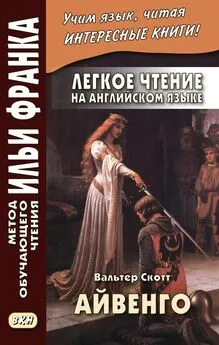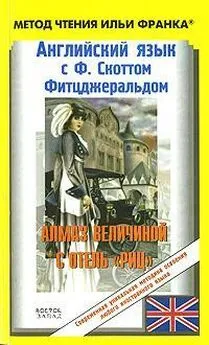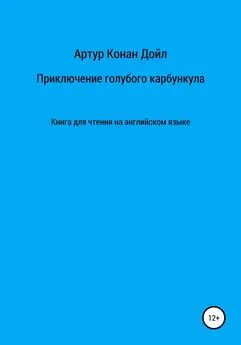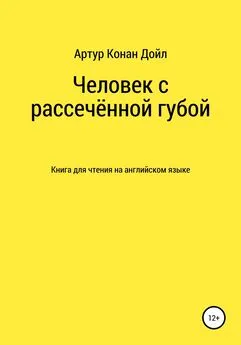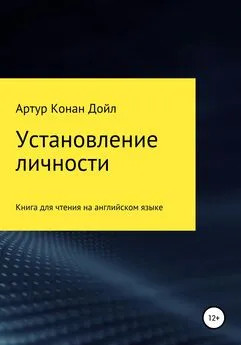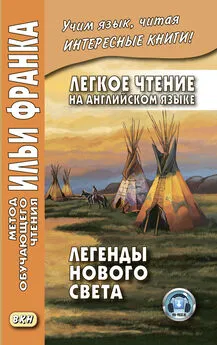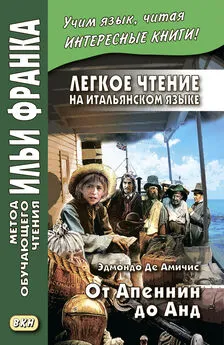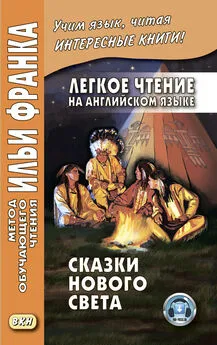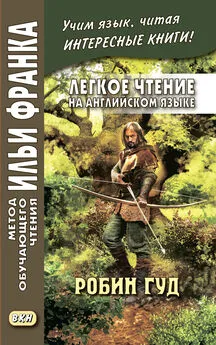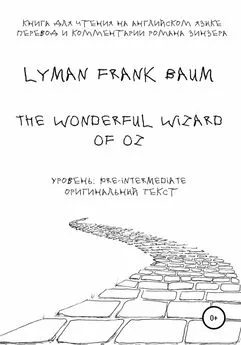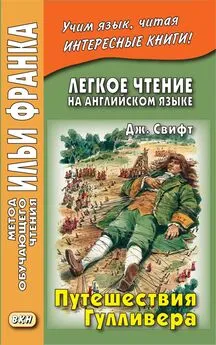Вальтер Скотт - Легкое чтение на английском языке. В. Скотт. Айвенго / Sir Walter Scott. Ivanhoe
- Название:Легкое чтение на английском языке. В. Скотт. Айвенго / Sir Walter Scott. Ivanhoe
- Автор:
- Жанр:
- Издательство:неизвестно
- Год:2022
- Город:Москва
- ISBN:978-5-7873-1910-1
- Рейтинг:
- Избранное:Добавить в избранное
-
Отзывы:
-
Ваша оценка:
Вальтер Скотт - Легкое чтение на английском языке. В. Скотт. Айвенго / Sir Walter Scott. Ivanhoe краткое содержание
Уникальность метода заключается в том, что запоминание слов и выражений происходит за счет их повторяемости, без заучивания и необходимости использовать словарь.
Пособие способствует эффективному освоению языка, может служить дополнением к учебной программе.
Для широкого круга лиц, изучающих английский язык и интересующихся английской культурой.
Легкое чтение на английском языке. В. Скотт. Айвенго / Sir Walter Scott. Ivanhoe - читать онлайн бесплатно ознакомительный отрывок
Интервал:
Закладка:
Cedric was certainly not about to let Prince John tell him what to do, and there would have been serious trouble if Wamba hadn’t jumped in between his master and Isaac.
“I will!” he shouted and swung his wooden sword over his head.
Pulling back from the jester’s sword(отступая от меча шута; to pull back – отдергивать, оттаскивать; отступать ) , Isaac stepped back(Исаак сделал шаг назад; to step – ступать, шагать, делать шаг; to step back – отступить ) and fell down the steps of the gallery(и упал со ступеней галереи; step – шаг; ступень, ступенька ) . The crowd, including the Prince and his Norman friends(толпа, включая принца и его друзей-норманнов) , laughed out loud at this sight(рассмеялась громко при виде этого: «от этого зрелища»; sight – зрение; вид; зрелище ).
“Give me a prize, Prince(дайте мне приз, принц) ,” said Wamba and came up to Prince John(сказал Вамба и подошел к принцу Джону).
“Who and what are you(кто ты и чем ты занимаешься; what – в вопросе о людях – об их профессии, характере и т. д. ) ?” asked the Prince, still laughing(спросил принц, все еще смеясь).
“I am a jester(я шут) ,” answered Wamba. “I am Wamba, the son of Witless(я Вамба, сын Безмозглого) .”
laugh[lɑ:f] , prize[praɪz] , witless[‘wɪtlɪs]
Pulling back from the jester’s sword, Isaac stepped back and fell down the steps of the gallery. The crowd, including the Prince and his Norman friends, laughed out loud at this sight.
“Give me a prize, Prince,” said Wamba and came up to Prince John.
“Who and what are you?” asked the Prince, still laughing.
“I am a jester,” answered Wamba. “I am Wamba, the son of Witless.”
“Normans, make room for the Jew(норманны, потеснитесь и дайте место этому еврею) down in the front of the gallery(внизу, в первых рядах галереи) ,” Prince John shouted over to the Norman noblemen(принц Джон прокричал знатным норманнам; noble – благородный, возвышенный; знатный, титулованный; nobleman – дворянин; аристократ ) . “Come here, Isaac, and lend me a handful of money(идите сюда, Исаак, и одолжите мне пригоршню монет; handful – пригоршня; горсть; money – деньги ) .”
Afraid, Isaac went up to the Prince(испуганный, Исаак подошел к принцу) and gave him the money from a little bag on his belt(и отдал ему деньги из небольшого кошелька, /висевшего/ на поясе; bag – мешок; сумка; чемодан, пакет; кошелек ).
shout[ʃaʋt] , lend[lend], handful[‘hændfʋl]
“Normans, make room for the Jew down in the front of the gallery,” Prince John shouted over to the Norman noblemen. “Come here, Isaac, and lend me a handful of money.”
Afraid, Isaac went up to the Prince and gave him the money from a little bag on his belt.
Prince John threw the money to Wamba(принц Джон бросил деньги Вамбе) , and turned to the Prior(и обернулся к приору).
“We are forgetting the Queen of Love and Beauty(мы забываем о королеве любви и красоты) ! I hope it will be that beautiful Rebecca(я надеюсь, что ею станет эта прекрасная Ревекка) . That would really make the Saxons angry(это действительно разозлит саксов; angry – рассерженный, сердитый, недовольный, раздраженный, разгневанный; to make angry – раздражать, досаждать, сердить ) !”
“A Jewess(еврейка) !” Prior Aymer turned his eyes up in horror(приор Эймер поднял глаза к небу: «вверх» в ужасе) . “If Bois-Guilbert wins the tournament(если Буа-Гильбер выиграет этот турнир) , I think I know(мне кажется, я знаю) who he will choose to be the Queen of Love and Beauty(кого он выберет королевой любви и красоты) !”
threw[θru:] , angry[‘æŋɡrɪ] , horror[‘hɔrǝ]
Prince John threw the money to Wamba, and turned to the Prior.
“We are forgetting the Queen of Love and Beauty! I hope it will be that beautiful Rebecca. That would really make the Saxons angry!”
“A Jewess!” Prior Aymer turned his eyes up in horror. “If Bois-Guilbert wins the tournament, I think I know who he will choose to be the Queen of Love and Beauty!”
Prince John gave the signal for the tournament to begin(принц Джон подал сигнал к началу турнира: «к тому, чтобы турнир начался») , and a herald came forward(и герольд вышел вперед; to come forward – выходить вперед, выступать, выдвигаться ) to read out the tournament rules(чтобы зачитать правила турнира; to read out – прочитать вслух; rule – правило, норма ).
Five Norman knights had already been chosen by the Prince(пять рыцарей-норманнов уже /заранее/ были выбраны принцем) to be the ‘challengers’ for the day(быть «зачинщиками» турнира /в тот день/; challenge – вызов /на поединок, дуэль и т. п./; to challenge – бросать вызов, вызывать; challenger – кандидат, претендент, соискатель; тот, кто бросает вызов ) . These five knights stood next to their tents at the end of the lists(эти пятеро рыцарей стояли рядом со своими шатрами в конце ристалища; tent – палатка, шатер ) and held up their shields for everyone to see(и держали высоко свои щиты, чтобы каждый мог их видеть).
signal[‘sɪɡn(ǝ)l] , herald[‘herǝld], rule[ru:l] , challenger[‘tʃælɪndʒǝ], shield[ʃi:ld]
Prince John gave the signal for the tournament to begin, and a herald came forward to read out the tournament rules.
Five Norman knights had already been chosen by the Prince to be the ‘challengers’ for the day. These five knights stood next to their tents at the end of the lists and held up their shields for everyone to see.
According to the rules(согласно правилам) , these five challengers would have to fight(эти пятеро зачинщиков должны были сражаться) against any other knight(против любого другого рыцаря) who chose to fight against them(который захотел бы сражаться против них; to choose – выбирать; разг. хотеть, желать ) . A knight could choose(любой рыцарь мог сделать выбор /и/) to fight against one of the challengers(драться с одним из зачинщиков /турнира/) by touching that challenger’s shield with his lance(коснувшись: «путем касания» щита того зачинщика своим копьем; to touch – /при/касаться, трогать, притрагиваться ).
according[ǝ’kɔ:dɪŋ] , touching[‘tʌtʃɪŋ], covered[‘kʌvǝd] , rider[‘raɪdǝ]
According to the rules, these five challengers would have to fight against any other knight who chose to fight against them. A knight could choose to fight against one of the challengers by touching that challenger’s shield with his lance.
If he touched the shield with the back end of his lance(если он касался щита тупым концом своего копья; back – задний ) , the two knights would fight with their lances covered(то двое рыцарей состязались закрытыми копьями /т. е. копьями, не с железными, а деревянными наконечниками/; to cover – накрывать, закрывать, покрывать; covered – имеющий крышу; покрытый крышей; укрытый, прикрытый, защищенный; закрытый, покрытый ) , so that there was no danger to the horses or riders(так, чтобы не было опасности для коней или всадников).
If the knight touched the shield(/однако/, если же рыцарь касался щита) with the point of his lance, however(острием своего копья; point – точка, пятнышко, крапинка; острие; наконечник; however – однако, тем не менее ) , the knights would fight against each other(рыцари сражались друг с другом) with sharp weapons(острым оружием; sharp – острый; остроконечный, отточенный ) , like in a real battle(как в настоящей схватке; battle – битва, сражение, бой; поединок, схватка /между двумя участниками/ ) . At the end of the fighting(в конце /всех/ сражений) , Prince John would announce the winner of the day’s tournament(принц Джон объявлял победителя турнира того дня) . The winner would receive a war-horse as a prize(победитель получал боевого коня в качестве приза) and have the honour of naming the Queen of Love and Beauty(и имел честь назвать королеву любви и красоты; to name – называть, давать имя; называть кого-либо кем-либо ).
Читать дальшеИнтервал:
Закладка:
